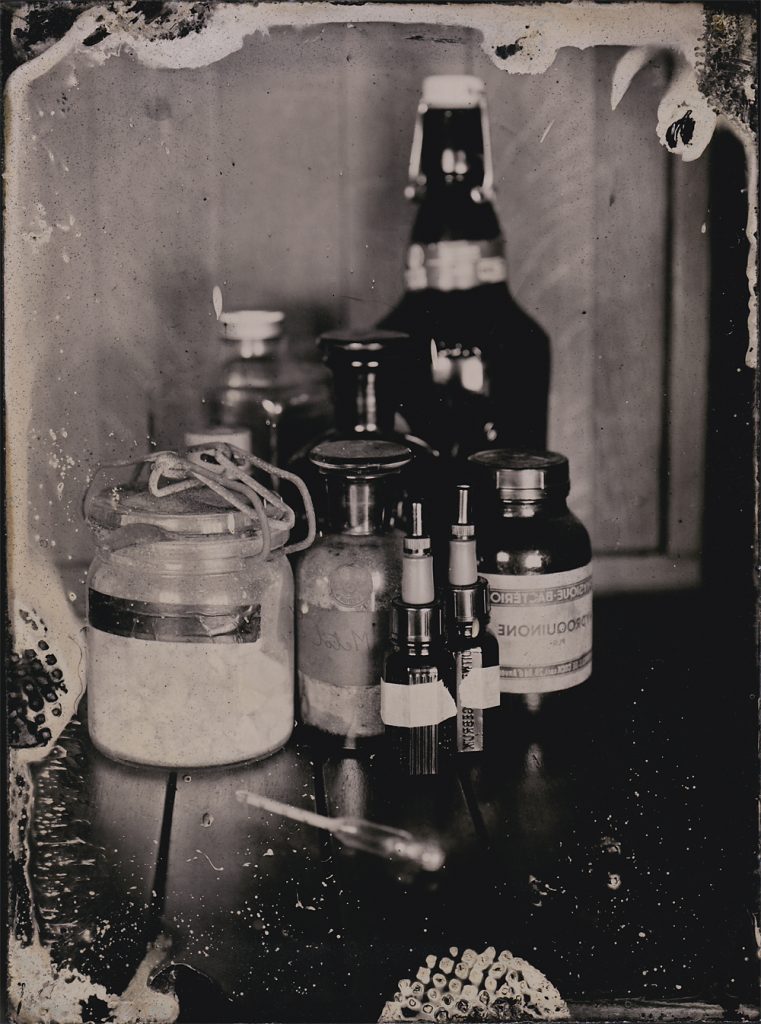Charly’s Collodion/Emulsion Recipe Hacking Tool

This tool is in BETA, there may be bugs, numerical errors, ...
This tool allows you to take a collodion or emulsion recipe and see some basic statictics on it as well as doing things like swapping one ingredient for another (in a way that somehow chemically makes sense).
This tool mainly takes the burden out of common calculations related to collodion recipes. You still kneed to know what you are doing to make actual sense of the results. Use this tool if:
Total Br-: 0
Total I-: 0
Total Cl-: 0
Total Br-: 0
Total I-: 0
Total Halides-: 0
I-Br-Cl (mol): 0 (relative to total halides)
I-Br-Cl (weight): 0 (relative to total halides)
Silver/Halides: 0 (for every Halide there are x silver atoms in the recipe)
Total solvents: 0
Water content: 0
Nitrocellulose: 0
Ether-Ethanol: 0 (relative to total ethanol + ether)
Collodion : 0
Alcohol : 0
Ether: 0
Water: 0
- You want to gain insight in what makes existing collodion recipes tick and compare them to each other.
- You want to tweak an existing recipe.
- You have slightly different ingredients and want to follow the original recipe as closely as possible.
- Before trying out a totally new recipe in practice, compare it to existing recipes on paper.
The Original Recipe
Fluids are entered in ml, salts in g. If your recipe uses hydrated salts you can find those at the bottom of the list. (Note: A lot of the hydrates are currently still missing.). These recipes are just for illustration purposes if you look around the web enough you can actually find different formulations for recipes with the same name. Most of the recipes are also pretty vague on the type of collodion, alcohol and hydrates used. They are just recipes I found around different sites and books.Key Statistics
Total Cl-: 0Total Br-: 0
Total I-: 0
Total Cl-: 0
Total Br-: 0
Total I-: 0
Total Halides-: 0
I-Br-Cl (mol): 0 (relative to total halides)
I-Br-Cl (weight): 0 (relative to total halides)
Silver/Halides: 0 (for every Halide there are x silver atoms in the recipe)
Total solvents: 0
Water content: 0
Nitrocellulose: 0
Ether-Ethanol: 0 (relative to total ethanol + ether)
Change Solvents
Substitutes other solvent mixes maintaining original Nitrocellulose and solvent contents. If you get negative values you will have to take this amount out of the mix. In practice this probably means you can't make the recipe using your selected ingredients. In reality, you may also have to fudge a bit with the water as it may not be enough to dissolve the salts. Updated recipe contents:Collodion : 0
Alcohol : 0
Ether: 0
Water: 0